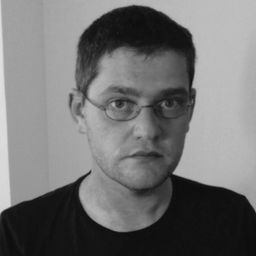
He published his first monograph in 2008, Saints légionnaires des Alpes du sud (Paris, Maison des Sciences de l’Homme) and various papers in the International Journal of Heritage Studies (UK), the Journal of Mediterranean Studies (Malta), Memoria em Rede (Brazil) or ethnographiques.org (France-Switzerland). He co-edited four special issues of Ethnologie Française, Civilisations, Journal of Tourism and Cultural Change and Etnográfica and taught cultural anthropology at the universities of Provence, Nice-Sophia Antipolis, Paris V-René Descartes and Evora (Portugal).
Sessions auxquelles Dr Cyril Isnart participe
Samedi 4 Juin, 2016
Mardi 7 Juin, 2016
Dans la tradition occidentale, le patrimoine culturel trouverait ses fondements «dans le concept chrétien de l’héritage sacré de la foi» (Babelon et Chastel 1994), dont la conservation des objets religieux sous l’Antiquité et le culte des reliques seraient les prémices. Posant alors le principe du «transfert de sacralité», on emprunta le vocabulaire et les techniques du premier pour construire le second, qualifiant ainsi le fait patrimonial comme le culte laïc des productions humaines. Le sac...
Sessions auxquelles Dr Cyril Isnart assiste
Vendredi 3 Juin, 2016
This forum will explore the current directions of critical heritage studies and what makes ACHS distinctive. Panel members will discuss what the term critical means to them, and what directions they would like to see develop in the future. To help develop an open dialogue, the session will also give considerable time to contributions from the audience.
Samedi 4 Juin, 2016
Most of what we experience as heritage emerges into conscious recognition through a complex mixture of political and ideological filters, including nationalism. In these processes, through a variety of devices (museums, scholarly research, consumer reproduction, etc.), dualistic classifications articulate a powerful hierarchy of value and significance. In particular, the tangible-intangible pair, given legitimacy by such international bodies as UNESCO, reproduces a selective ordering of cul...
Dimanche 5 Juin, 2016
Heritagization (the various means by which cultural features—either material or immaterial—are turned into a people’s heritage) has recently become, for Amerindian groups, a major means to gain visibility and recognition in the new Latin American social and political landscapes where cultural diversity is endowed with an increasingly critical role. Different forms of cultural heritagization have largely been studied elsewhere, particularly in North America. However, they are far less known in...
Lundi 6 Juin, 2016
Dans le cadre d’une réflexion pluridisciplinaire croisant anthropologie, archéologie, architecture, géographie, histoire, politologie, cette séance propose des lectures empiriques du patrimoine matériel et immatériel en situation conflictuelle. Le patrimoine sera interrogé en tant que construction sociale à valeur symbolique, catalyseur d’appropriation et/ou de fabrications identitaires et objet de discours mémoriels. Dans des contextes politiques autoritaires, et où la contestat...
Le patrimoine fait aujourd’hui l’objet d’attentions autant que d’agressions et de destructions. Cela peut s’expliquer par les difficultés de son identification ou de sa conservation. Cela peut plus profondément s’expliquer parce que, dès le départ, il célébre un événement ou conserve une mémoire qui peut être ou devenir une source de dissenssions et de conflits politiques. Enfin, sa reconnaissance suscite des gains économiques pour les uns mais des pertes pour les autres. Mais peut-être...
Mardi 7 Juin, 2016
While historical churches are being abandoned all over the Christian West, more and more places are growing the opposite way: pilgrimage sites are being enlarged and enhanced, whole urban districts are being developed with churches and temples boasting diverse, and often unorthodox, religious practices. Epistemologically linked to heritage, the sacred now seems to follow a path of its own, staging itself in new settings where the “religious heritage” refers mostly to common practices, however...




